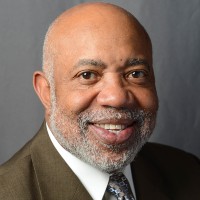(Editor’s note: Dewey McClain (D-Lilburn) represents the 100th District in the Georgia House of Representatives. A former NFL linebacker, Rep. McClain previously worked at the Atlanta Workforce Development Agency and served as president of the Atlanta North Georgia Labor Council.—eeb.
By Rep. Dewey McClain
LILBURN, Ga. | The COVID-19 pandemic crashed into Georgia’s economy like a freight train. Two years later, we’re still just barely getting back to our pre-COVID jobs numbers.
Joe Biden’s COVID relief and infrastructure bills give Georgia a once-in-a-generation opportunity to accelerate our recovery and build an inclusive 21st century workforce. Investments in digital literacy and job skills development need to be near the top of the list.
A recent study from the National Skills Coalition found that one in three U.S. workers lacks basic digital know-how. These skills gaps are a hurricane-force headwind against economic mobility, and the income gap between the digitally fluent and the disconnected will only grow as more jobs require computer skills.
Georgia is already off to a strong start closing one piece of our digital divide: making sure every home and business has high-speed internet service available. We’re investing $408 million to build out networks to reach the estimated 10 percent of Georgians not yet reached by broadband.
That’s a good start, but it’s far from a complete answer. Here in Gwinnett County, for example, more than 99 percent of homes already have broadband available, but roughly one in five still aren’t connected. Full digital participation has never been as easy as “if you build it, they will come.”
The cost of internet service has historically been one factor among many explaining this “adoption gap.” But the combination of low-income discount programs from ISPs and the federal government’s new $30-a-month broadband benefit now makes home internet service essentially free for lower-income families.
It’s hard to beat free. Yet even still, a big chunk of our community is stuck offline, falling further behind as they miss out on the job leads, educational programs, and other opportunities that an internet connection unlocks.
Digital skills gaps are a big part of the reason why. Without a comfortable handle on the basics – operating a computer, navigating online – even signing up for a free or low-cost internet program can be intimidating. What’s more, without these skills, it can be harder to really appreciate the value and opportunities that come from getting online in the first place.
Georgia now has a big opportunity to tackle this challenge head-on. We can put some of our incoming federal broadband funding to work funding digital skills training programs and other initiatives aimed at increasing sign-up rates.
For example, we can fund community colleges to offer or expand free “computer skills 101” courses for adult learners. Partnering with community centers, libraries, and churches can bring these classes off-campus and directly into under-connected neighborhoods.
Pilot programs in other cities have proven out the “digital navigator” model: training a corps of boots-on-the-ground community workers to work one-on-one with unconnected neighbors and help them get online. Georgia should scale this model statewide.
At the same time, we should bring big employers and labor groups around the table to map out the digital workforce skills urgently needed for today’s job openings and tomorrow’s opportunities – and then deliver virtual trainings and upskilling courses online to our newly connected neighbors.
As the AFL-CIO’s Richard Trumka has argued, technology can be a force “for good, not for greed.” But to realize this vision, we first need to make sure everyone has the skills and confidence to navigate and thrive in our digital future.
- Have a comment? Send to: elliott@brack.net










Follow Us